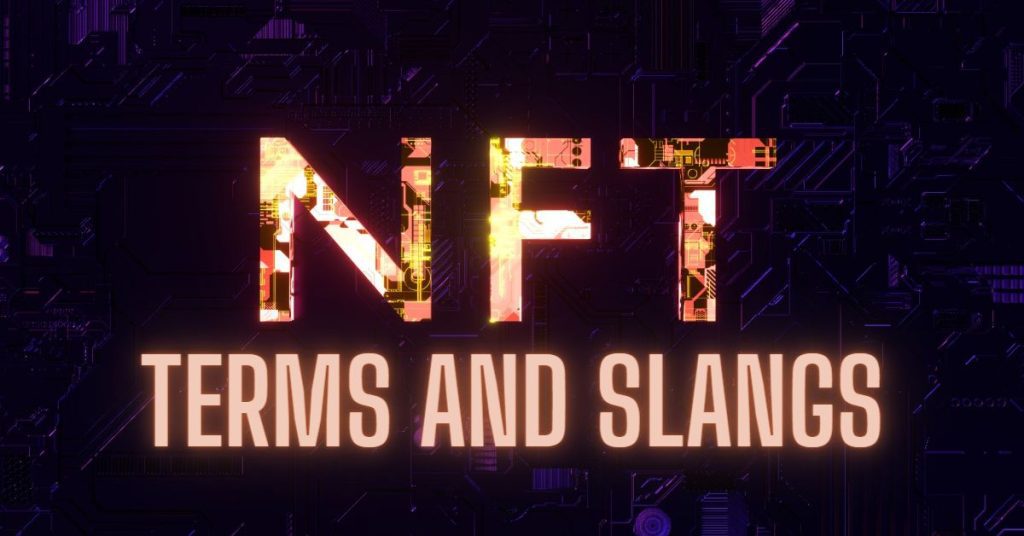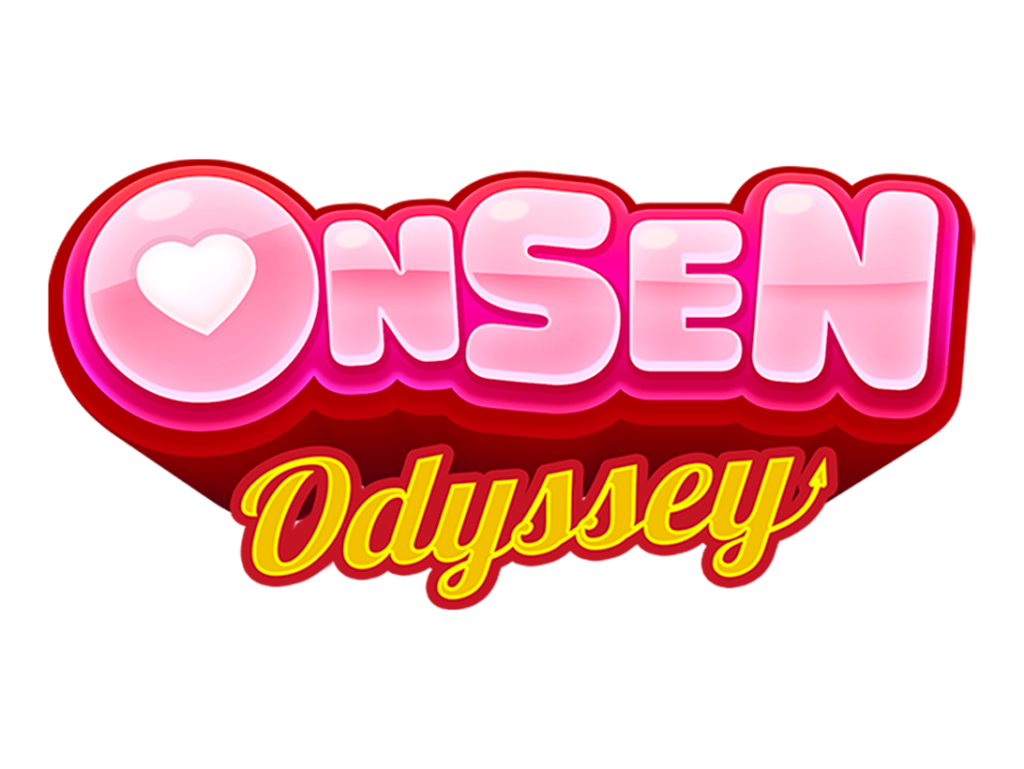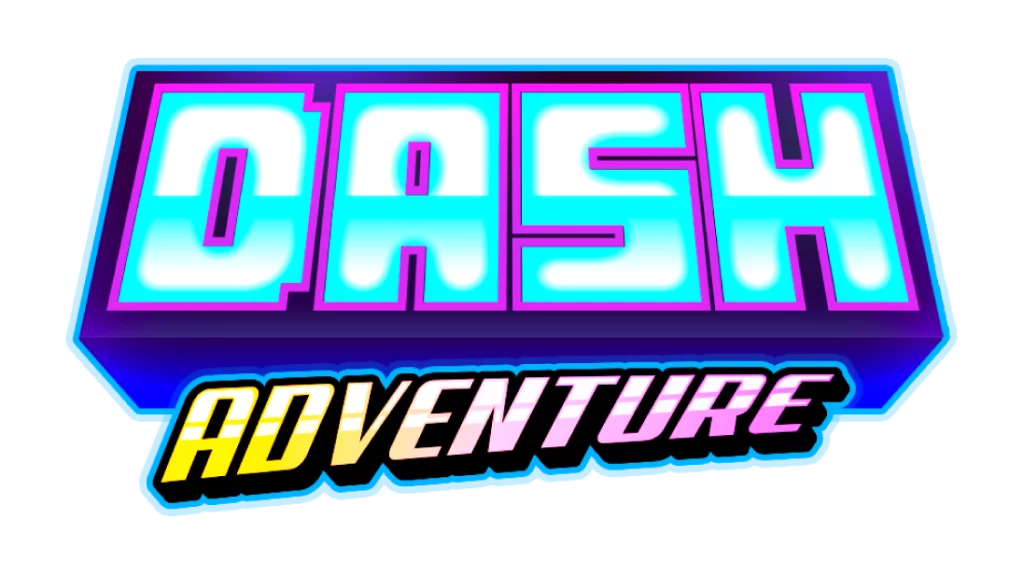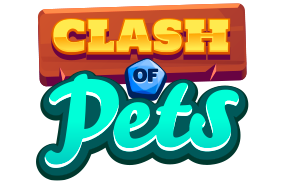Are you feeling lost in the world of NFTs? Do you find yourself scrolling through Twitter or Reddit, only to come across a sea of unfamiliar terms and slang? Don’t worry, you’re not alone. The world of non-fungible tokens can be overwhelming at first, especially when it comes to understanding the meanings of some NFT slang terms used by the community.
Although, if you’re new to the world of NFTs. Terms like “rugpull”, “paper hands”, and “moonboy” may leave you scratching your head. Well, fear not, we’ve got you covered.
In this comprehensive glossary, we’ll take you through the A to Z of NFT slang meanings and terminology, so you can join the conversation with confidence.
From basic acronyms like “NFT” and “BTC” to more advanced concepts like “WAGMI ” and “BTFD “. Our glossary will provide you with a deep dive into the jargon and terminology used in the non-fungible token sphere. And don’t worry, we’ll also cover the most common NFT slang words and phrases too! This way, you can keep up with the conversation on social media.
So whether you’re a diamond hands or a proud degen, our guide will help you navigate the NFT world easily. Once you’ve familiarized yourself with the main NFT lingo, you can read up on our other guides to learn how to make the most of your new knowledge.
We have detailed features on “the best upcoming NFT games”, and a 101 on “What are NFT Games?” article. Everthing designed to help you become an NFT expert in no time.
So what are you waiting for? Let’s dive into the world of NFT slang and terminology and unlock the secret meanings of this exciting new digital Vocabulary.
Dictionary of NFT Acronyms With Their Meanings
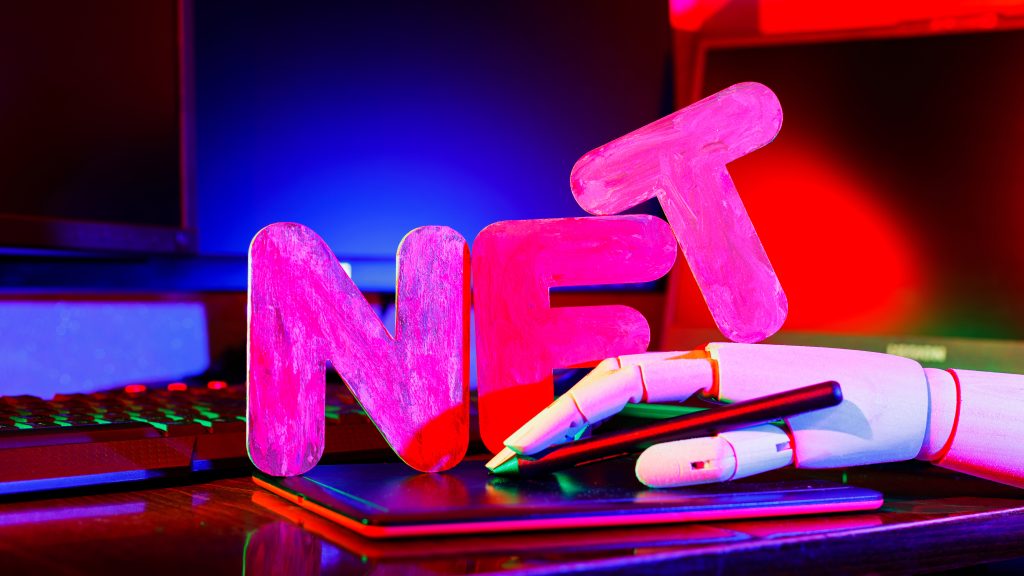

AFAIK – As far as I know
It is fairly straightforward. Often used to preface a statement that is based on the speaker’s knowledge or understanding of a particular topic.
AMA – Ask Me Anything
It is typically used in online forums, social media platforms, or live events where a person invites questions from an audience. This is in order to provide more detailed information about the project and engage with their community. Specially helpful in NFT launch and pre-sale ICO.
AMM – Automated Market Maker
It refers to a type of decentralized exchange mechanism that uses mathematical algorithms to set the price of a particular asset based on supply and demand. This approach allows for more efficient trading and can help reduce the costs associated with traditional centralized exchanges.
APR – Annual Percentage Rate
It is a measure of the cost of credit expressed as a percentage rate over the course of a year. Borrowers can use the APR to compare the costs of different credit options. As it includes both the interest rate and any associated fees.
APY – Annual Percentage Yield
It is a measure of the rate of return on an investment over the course of a year. This includes the effect of compounding.
ATH – All-Time High
It refers to the highest price that a particular asset has ever reached. Tracking an asset’s ATH can provide insights into its historical performance and may influence investment decisions.
ATL – All-Time Low
It is the lowest price that a particular asset has ever reached. Like ATH, tracking an asset’s ATL can provide useful information for investors looking to make informed decisions about trading.
BSC – Binance Smart Chain
It is a blockchain platform created by the Binance exchange that is designed to enable fast and low-cost transactions.
BTC – Bitcoin
BTC is an acronym that stands for “Bitcoin“. It is a decentralized digital currency that uses cryptography to secure and verify transactions. Likewise, Bitcoin is the largest and most well-known cryptocurrency, and its popularity has contributed to the growth of the overall cryptocurrency market.
BTD – Buy The Dip
It is a popular trading strategy that involves buying an asset when its price experiences a temporary drop or correction. This strategy assumes that the asset’s price will recover in the future, providing an opportunity for profit.
BTFD – Buy The F*cking Dip
BTFD, or “Buy The Freaking Dip”. Is a more aggressive version of the BTD strategy that encourages investors to take advantage of significant market downturns to purchase assets at discounted prices. While this strategy may carry more risk, it can also lead to higher potential returns for savvy investors.
CEX – Centralized Exchange
A centralized exchange is a type of cryptocurrency exchange that operates under the control of a single organization or entity. CEXs often provide more robust trading features and higher liquidity than decentralized exchanges.But, they also carry the risk of centralization and the potential for security breaches.
CZ – Changpeng Zhao
Changpeng Zhao, known as CZ, is the founder and CEO of Binance. Which by now is one of the world’s largest and most popular cryptocurrency exchanges. Under CZ’s leadership, Binance has become a major player in the crypto space, offering a wide range of trading products and services to its global user base.
DAO – Decentralized Autonomous Organization
Is a type of organization that operates on a blockchain platform using smart contracts to enforce rules and decision-making processes. DAOs are designed to be transparent, democratic, and decentralized, with no entity controlling the organization’s actions or funds.
dApps – Decentralized Applications
Decentralized Applications, are software applications built on top of blockchain platforms like Ethereum. dApps are designed to be decentralized. This means they operate on a peer-to-peer network with no central authority or intermediary. Also, dApps can be used for a wide range of purposes, from financial transactions to social media.
DEX – Decentralized Exchange
DEX is an acronym that stands for “Decentralized Exchange”. In short, It refers to a cryptocurrency exchange that operates on a decentralized, peer-to-peer network. A crucial feature is that it does not rely on a single organization to manage and control the exchange. Here, trades are executed directly between users.
DYOR – Do Your Own Research
It is a common piece of advice. It is always given to cryptocurrency investors and traders, emphasizing the importance of conducting thorough research and analysis, rather than relying on rumors or the opinions of others, before making investment decisions. This minimizes their risk exposure.
ETH – Ethereum
ETH is an acronym that stands for “Ethereum“. It is a decentralized blockchain platform that enables the creation of smart contracts and decentralized applications.
EVM – Ethereum Virtual Machine
EVM is an acronym that stands for “Ethereum Virtual Machine”. It is a critical component of the Ethereum blockchain, as it enables the execution of smart contracts on the network. The EVM is a powerful computational engine that can execute complex code written in various programming languages. Among them including Solidity, the primary programming language used for Ethereum smart contracts.
FOMO – Fear Of Missing Out
FOMO is an acronym that stands for “Fear Of Missing Out”. It refers to the feeling of anxiety or regret that can arise when a person perceives that others are experiencing something positive and they are not. It is a common emotion that can influence investment decisions, particularly in the cryptocurrency market. FOMO can cause investors to buy an asset at a higher price than they would otherwise, due to the fear of missing out on potential gains.
FTX – Future Exchange Trading Ltd
Basically, FTX is a bankrupt company that used to be a cryptocurrency exchange and a crypto hedge fund. Before the crash, it was a cryptocurrency derivatives exchange that offered a wide range of trading products, including leveraged tokens.
GM / GN – Good Morning / Good Night
GM and GN are acronyms that stand for “Good Morning” and “Good Night”, respectively. They are often used in casual online conversations, particularly in social media platforms and messaging apps.
GMI – Going to Make It
Is an acronym used to express confidence or optimism about a particular situation. It is often used in contexts where the speaker believes that they or someone else will succeed despite difficult circumstances or challenges.
GTD – Going To Dust
Is an acronym that express pessimism or skepticism about a particular situation. It is often used to indicate that something is likely to fail, decline, or become obsolete over time.
HODL – Hold On for Dear Life
HODL is an acronym that stands for “Hold On for Dear Life”. It originated as a misspelling of the word “hold” in a Bitcoin forum post. But, since then, it became a popular term among cryptocurrency investors and traders. It refers to the strategy of holding onto an asset for a long period of time, despite short-term price fluctuations and market volatility, with the expectation of achieving substantial returns in the future.
ICO – Initial Coin Offering
It refers to a type of fundraising mechanism used by cryptocurrency projects, in which they issue and sell a new cryptocurrency in exchange for established cryptocurrencies, such as Bitcoin or Ethereum. It is a popular way for blockchain projects to raise funds for their development.
ICYMI – In Case You Missed It
ICYMI means “In Case You Missed It”. It is often used to share news or information that has already been published or shared. But, this information may not have been seen by a particular audience. It is commonly used in social media and online communications to highlight important or interesting content.
IDO – Initial DEX Offering
It is a fundraising mechanism used by blockchain projects to gather funds by issuing and selling new tokens directly on a decentralized exchange. It is similar to an ICO, but takes place on a decentralized exchange platform. Here, any investor can purchase the new cryptocurrency directly from the project’s smart contract. The main benefit is, it opens an opportunity to invest in promising projects at an early stage and, eventually, receive a share of their potential success.
IEO – Initial Exchange Offering
An IEO is similar to an IDO, but takes place on a centralized exchange platform. In this case, the exchange acts as a middleman between the project and the investors.
IGO – Initial Game Offering
An IGO is a type of fundraising mechanism used by gaming projects. This is where they issue and sell a new cryptocurrency that can be used within the game ecosystem previous to the official launch.
INO – Initial NFT Offering
INO is an acronym that stands for “Initial NFT Offering”. It is a type of fundraising mechanism used by NFT projects, in which they issue and sell a new NFT in exchange for established cryptocurrencies.
IPO – Initial Public Offering
IPO is an acronym that stands for “Initial Public Offering”. It is a type of fundraising mechanism used by companies, in which they issue and sell shares of their stock to the public for the first time.
ITO – Initial Token Offering
ITO or “Initial Token Offering” is a fundraising mechanism used by blockchain projects, in which they issue and sell a new cryptocurrency or token in exchange for established cryptocurrencies, such as Bitcoin or Ethereum.
IYKYK – If You Know You Know
IYKYK is an acronym that stands for “If You Know You Know”. It is commonly used to refer to inside jokes, niche interests, or specialized knowledge that only a select group of people would understand.
JOMO – Joy Of Missing Out
is the opposite of FOMO and refers to the feeling of contentment or relief that can arise when a person chooses to opt-out of an activity or event. This mindset has become increasingly popular in a society that values constant productivity and connectivity, as people seek to prioritize their well-being and disconnect from the pressure to always be “on.
KOL – Key Opinion Leader
KOL is an acronym that refers to a person who is influential in a particular industry or niche. They are often seen as experts or authorities in their field, and their opinions are highly regarded and respected by others.
KYC – Know Your Customer
It is a process used by financial institutions and cryptocurrency exchanges to verify the identity and suitability of their customers, in order to prevent fraud, money laundering, and other illegal activities. KYC typically involves collecting personal information and verifying it through various means, such as ID checks and credit reports.
LFG – Let’s F*cking Go
In the NFT space is used as an expression of enthusiasm or excitement, particularly about a new project launch or positive NFT news related.
NFA – No Financial Advice
In short, is as a disclaimer. Most commonly used by social media influencers, YouTubers, and other content creators who share information about cryptocurrency investments, to indicate that their content should not be interpreted as professional financial advice.
NFT – Non-Fungible Token
It is a type of digital asset that is unique and indivisible, meaning that it cannot be exchanged for another asset on a one-to-one basis. NFTs are often used to represent digital artwork, music, and other types of creative content. They are stored on a blockchain and provide proof of ownership and authenticity.
NGMI – Not Gonna Make It
NGMI means “Not Gonna Make It”. It is frequently used to refer to cryptocurrency projects or investments that are perceived to be failing or unlikely to succeed. In short, is the complete opposite of GMI.
OS – OpenSea
Is a decentralized marketplace for buying, selling, and discovering non-fungible tokens (NFTs) on the Ethereum blockchain. It allows creators to mint their own NFTs and list them for sale, and buyers to browse and purchase NFTs from a wide range of categories.
ROI – Return On Investment
is a financial performance metric used to evaluate the profitability of an investment. By comparing the investment’s profit or loss to its initial cost, investors can determine how much return they’ve received on their investment.
SATS – Satoshis
It is the smallest unit of Bitcoin. Named after its creator, Satoshi Nakamoto, and represents one hundred millionth of a Bitcoin.
Szn – Season
In the context of cryptocurrency or NFT markets, “szn” is a slang term that refers to the cyclical nature of the market. It is used to describe periods of high activity, hype, and price volatility, as well as periods of low activity, consolidation, and price stability.
WAGMI – We’re All Gonna Make It
WAGMI is an acronym that stands for “We’re All Gonna Make It”. It is often used as a rallying cry among cryptocurrency investors and traders, expressing optimism and confidence in the long-term potential of the market.
WL – Whitelist
WL is an acronym that stands for “Whitelist”. It is a list of approved participants who are allowed to participate in a particular cryptocurrency project or token sale. This process is commonly used to prevent fraud, scams, and other illegal activities in the crypto industry.
YOLO – You Only Live Once
YOLO is an acronym that stands for “You Only Live Once”. It is often used as a playful or lighthearted expression of risk-taking behavior, particularly in the context of cryptocurrency investments. It encourages people to take bold and sometimes risky decisions.
ZRX – 0x Protocol
ZRX is a ticker symbol that represents the 0x Protocol, a decentralized exchange (DEX) built on the Ethereum blockchain. It allows users to trade ERC-20 tokens without the need for a centralized intermediary, and offers a range of features such as limit orders, liquidity pools, and more to improve the efficiency and security of decentralized trading.
NFT slang and Jargon Terms from A to Z
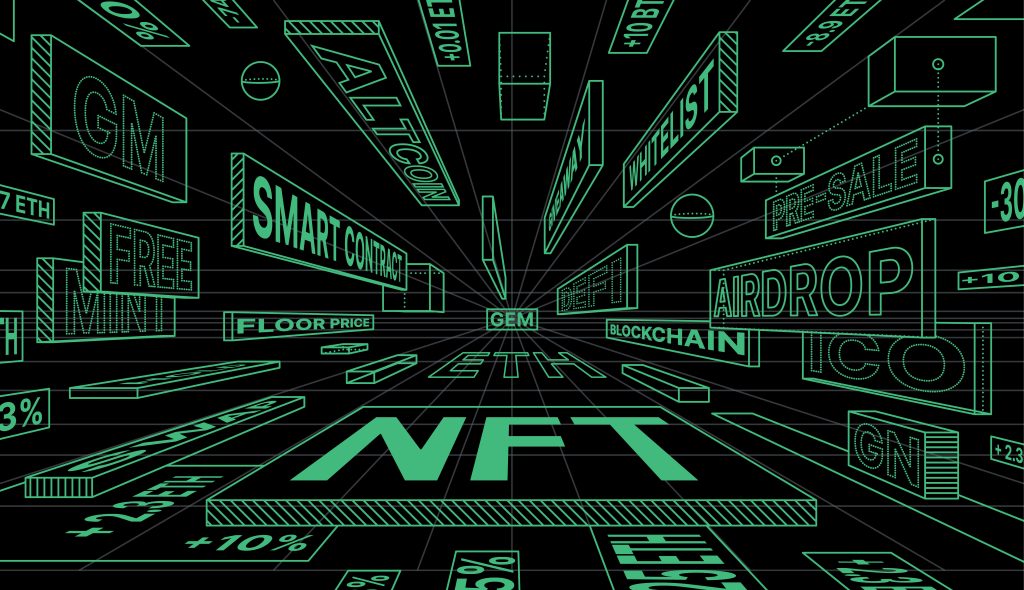

Here are some popular slang terms with their meanings used in the NFT community that you should be aware of:
1:1 Art
1:1 Art refers to a type of non-fungible token (NFT) art that is unique and has only one copy or edition. The artwork is often considered more valuable because of its scarcity and exclusivity. Beeple’s art work is a good example of 1:1 Art.
10k project
This term is used to refer when a project is based on similar avatar projects and is not related to the actual number of NFTs in the collection. But at first, it was related to the NFT collection of about 10,000 avatars, which at the time was probably the most famous collection of CryptoPunks.
Ape-ing (into something)
Ape-ing (into something) means to describe the act of investing a significant amount of money into a cryptocurrency or NFT project without conducting thorough research or due diligence. In short, buying something in a reckless manner and typically led by FOMO.
Crypto Twitter (CT)
Crypto Twitter (CT) refers to the community of cryptocurrency enthusiasts, investors, and professionals who actively engage with each other on the social media platform Twitter.
Ded
Slang used to describe a cryptocurrency or NFT project that has failed or is no longer active. It is short for “dead”.
Degen
Is a slang term used to refer a cryptocurrency or NFT investor who is willing to take high risks. This is acomplished making speculative investments. For example, you could say some degens are ape-ing in the NFT space because of an AMA they’ve just watched.
Delayed Reveal
Delayed Reveal is a feature in some NFT projects where the artwork or other attributes of the token are not revealed immediately after purchase. Instead, they are gradually revealed over time, creating anticipation, FOMO and excitement among buyers. Think of it as opening a pack of Pokemon Trading Card Game for the first time. These often split into different tiers where the first ones in jumping in get better chances for rare NFTs.
Delist
Delist is a term used to describe the removal of a cryptocurrency or token from a particular exchange or trading platform. It can happen for a variety of reasons, including low trading volume, security concerns, or regulatory issues.
Diamond hands
In the world of crypto, diamond hands refer to investors who hold onto their investment despite market volatility, rather than selling for a quick profit. This is in contrast to “weak hands” who panic-sell when the market dips.
Doxxed/ Doxed
To be doxxed means that a team’s private information, such as their name, or Discord private usernames, has been made public without their consent. Doxxing is a serious issue in the crypto and NFT space and is often used as a way to intimidate. However, when it comes to NFT projects, doxxing of team members, developers, or creators can also signal transparency. When NFT collectors can verify the identity of the people behind a project, it can help build trust and increase confidence in the project’s legitimacy.
Dutch auction
A Dutch auction is a type of auction in which the auctioneer starts with a high asking price and gradually lowers it until a buyer is willing to make a purchase. In the context of crypto or NFTs, a Dutch auction can be used to determine the fair market value of an asset.
Flex
Flex is a slang term used to describe the act of showing off one’s wealth or success, frequently through social media or on discord display picture. Also, they are often seen in profile pictures on Twitter.
Flip / Flipping
Flip or flipping is a term used to describe the act of buying a cryptocurrency or NFT with the intention of quickly selling it at a higher price for a profit.
Fren
Fren is a slang term used to refer to a friend or fellow member of the cryptocurrency or NFT community. It is simply a misspelling.
Fudder
Fudder is a term used to describe someone who spreads and engages with FUD about a particular cryptocurrency or NFT project. They may do so intentionally or unintentionally to pump/dump the project.
Fudding your own bags
It refers to the act of spreading FUD with false and negative information about a cryptocurrency or NFT project in which you have invested, potentially causing the value of your own investment to decrease.
Looks rare
Looks rare is a slang term used to describe an NFT that appears to be unique or scarce, more specifically “rare” but it really means the opposite as in an ironic way. Basically it’s like saying: “it looks like trash”. Just as important, note that It’s not nearly related to the NFT marketplace called LooksRare.org
McDonald’s
McDonald’s in crypto is a slang ling used to mention a back-up career in case one’s cryptocurrency or NFT investments don’t work out and going to make it (GM) fails.
Meatspace
Meatspace is a term used to refer to the physical world, as opposed to the metaverse or virtual world of the blockchain. It is the same as In Real Life (IRL).
Moonboy
Moonboy is a slang term used to describe a cryptocurrency or NFT investor who is overly optimistic and bullish about a particular project, often predicting astronomical gains or “mooning” of the project’s value.
Never trust, always verify
Never trust, always verify is a common phrase in the cryptocurrency and NFT community, encouraging investors to conduct their own research and verify the legitimacy of a project or investment opportunity before committing any funds.
Noob / Pleb
Noob or pleb is a slang term used to describe a newcomer or beginner to the cryptocurrency or blockchain space. It is often used to refer to someone who is inexperienced or lacks knowledge about the industry. The term “noob” is derived from the word “newbie,”. “Pleb” is a slang term that comes from the word “plebeian,” which originally referred to the common people in ancient Rome. In the context of the cryptocurrency and blockchain community, both “noob” and “pleb” are used to refer to someone who lacks experience or knowledge in the space.
One of One
“One of One” refers to an NFT that is unique and has no duplicates. It is often used to describe a rare or highly valued NFT that is one of a kind. It is the same as 1:1 art.
Paper Hands
“Paper hands” is a slang term used to describe someone who sells their crypto assets quickly and easily at the first sign of a price drop or market correction. This term is often used in contrast to “diamond hands,” which refers to investors who hold onto their assets for the long term, despite market fluctuations.
Probably nothing
“Probably nothing” is a phrase that is often used sarcastically in the cryptocurrency and NFT community to downplay the significance of a potentially significant event or announcement.
Pumping
“Pumping” is a term used to describe the rapid increase in the value of a cryptocurrency or NFT, usually caused by a coordinated effort by a group of investors or traders to buy up a particular asset.
Rekt
“Rekt” is a misspelling of the word “wrecked”. Is often used to describe a situation where someone has suffered significant losses in the cryptocurrency or NFT market.
Right Click Save As
Is a sarcastic phrase used to criticize someone who doesn’t believe in NFTs and mocks about it. Hence, the speech that NFTs are low-quality or unoriginal digital artwork that can be easily copied and saved with a simple right-click on a computer mouse. They are also known as “Right clickers”.
Rugpull
“Rugpull” is a term used to describe a type of scam where developers or investors suddenly abandon a project, taking all the funds with them and leaving investors with worthless assets.
Shtposter
“Shtposter” is a derogatory term used to describe someone who posts low-quality or meaningless content on social media or online forums.
Sharding
In the context of NFTs, sharding refers to the practice of breaking up a single NFT into multiple pieces, allowing them to be owned by multiple individuals or groups. This can be useful for expensive NFTs that are out of reach for individual buyers but can be collectively owned through fractional ownership.
Shilling
“Shilling” is a term used to describe the act of promoting or hyping a particular cryptocurrency or NFT project, often for personal gain or as part of a marketing strategy. Often involves influencers in the crypto space or social media.
Snag
“Snag” also known as “Sniping”, is a term used to describe the act of buying a highly valued NFT or cryptocurrency asset at a low price before its value increases and quicly sell it quickly.
Snipe
Is a term used to describe the act of placing a last-minute bid on an auction for an NFT or cryptocurrency asset. This as an attempt to win it at a lower price than other bidders. This can involve using software or other tools to place bids automatically in the final seconds of an auction.
Wen
“Wen” is a misspelling used as an internet slang term to inquire about the release date or expected arrival time of a particular event or product, such as a new NFT drop or cryptocurrency exchange listing. Also, commonly seen as wen moon.
Yield Farming
Yield Farming is a process in which cryptocurrency holders earn rewards by providing liquidity to decentralized exchanges (DEXs) or other DeFi protocols. It involves staking or lending cryptocurrency to earn interest or other tokens as a reward.
Bottom Line
Navigating the world of NFTs can be overwhelming, especially with the constant influx of new terms and slang. However, with our comprehensive glossary, you now have a solid understanding of the most important NFT terms and slang meanings used in the industry.
From “diamond hands” to “rugpulls” the jargon used in the NFT space can be confusing. But by familiarizing yourself with these terms, you’ll be better equipped to engage in the conversation and make informed decisions as a collector, creator, or investor.
So there you have it, folks. We hope this guide has given you a better understanding of the common crypto terms and slang used in the NFT world.
Moreover, as NFTs continue to gain popularity, it’s important to stay up-to-date with the terminology and trends in this space. The impact of NFTs on the economy is already evident, and their potential to revolutionize various industries is immense.
By understanding the terminology we’ve covered, you’ll be better equipped to navigate the twitter lingo!
So go ahead and explore the world of NFTs with confidence. And don’t forget to keep an eye on new slang terms that may emerge in the ever-evolving world of crypto. Thanks for reading!

